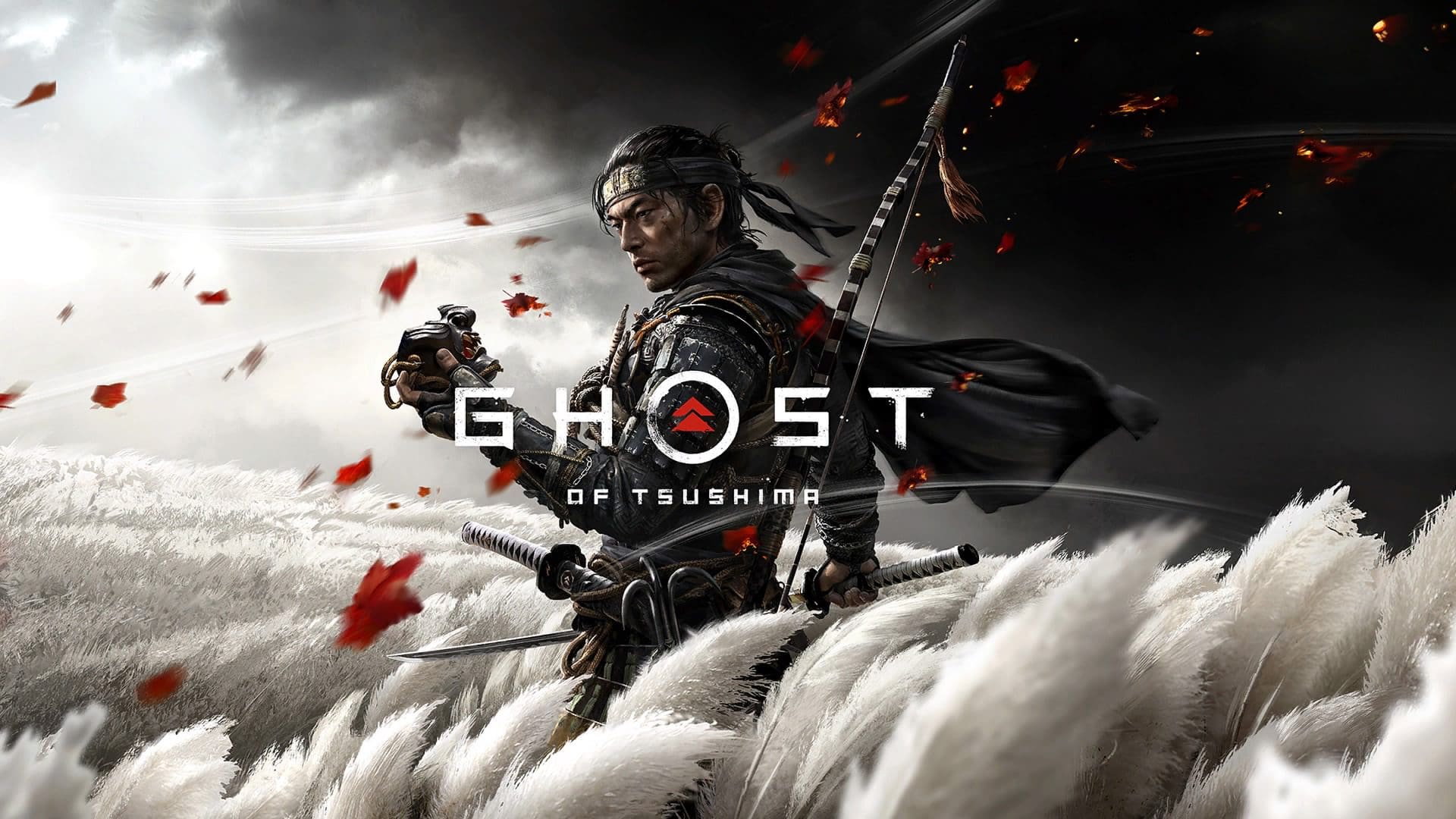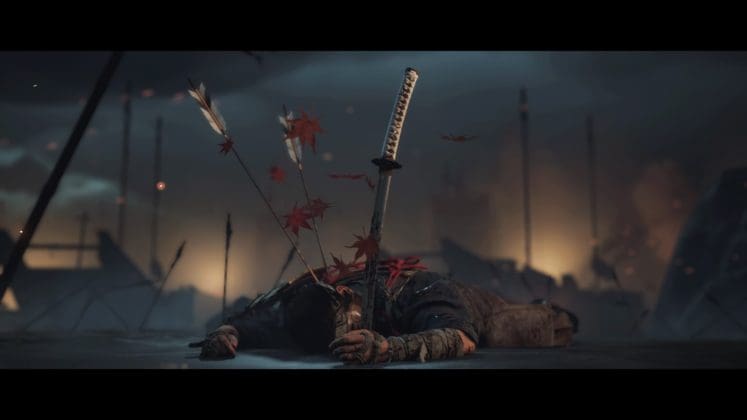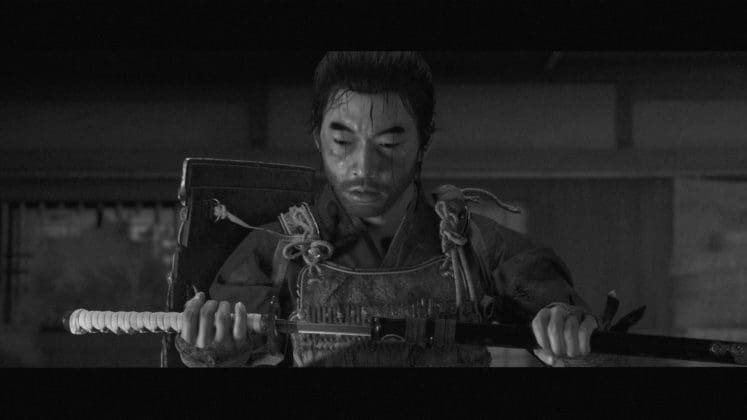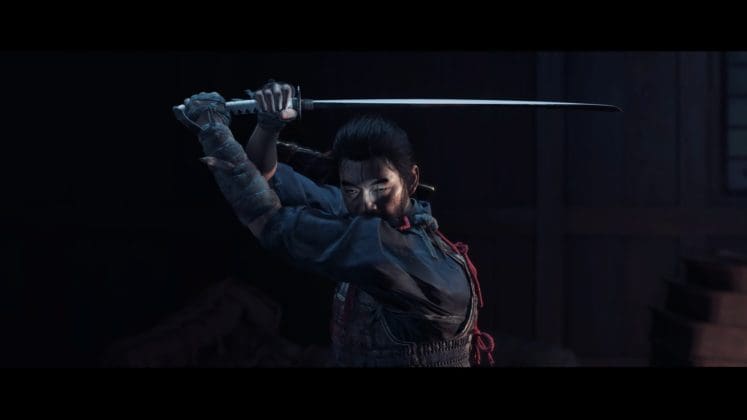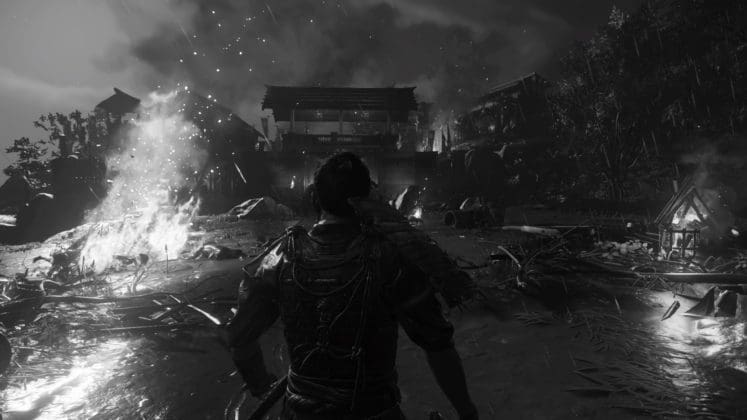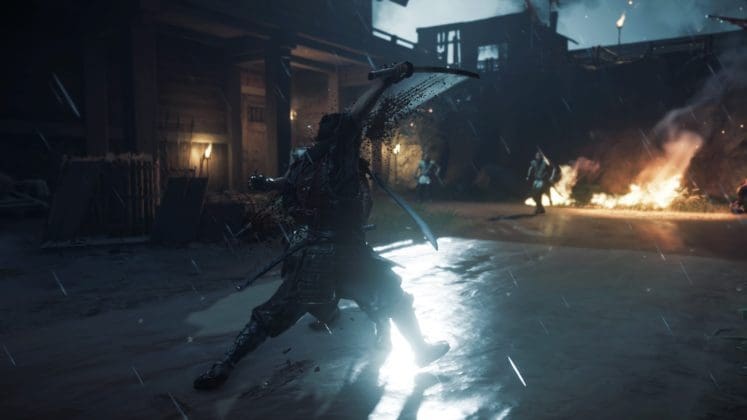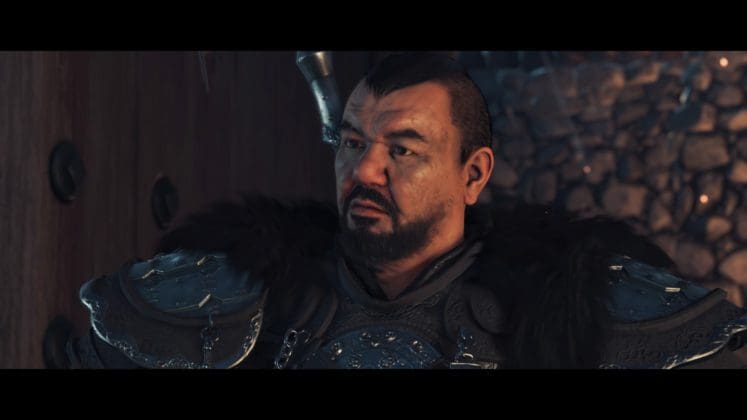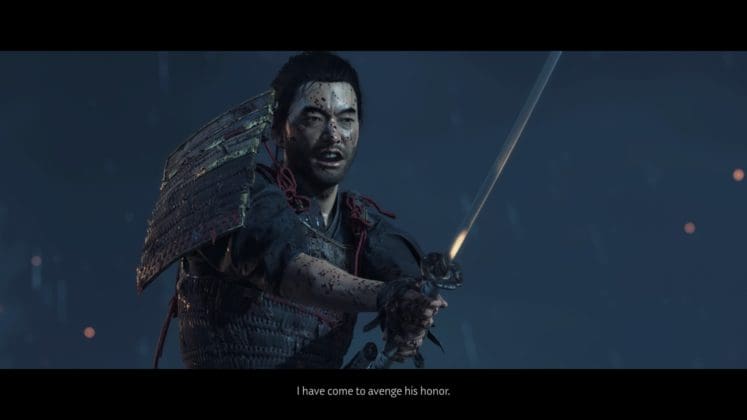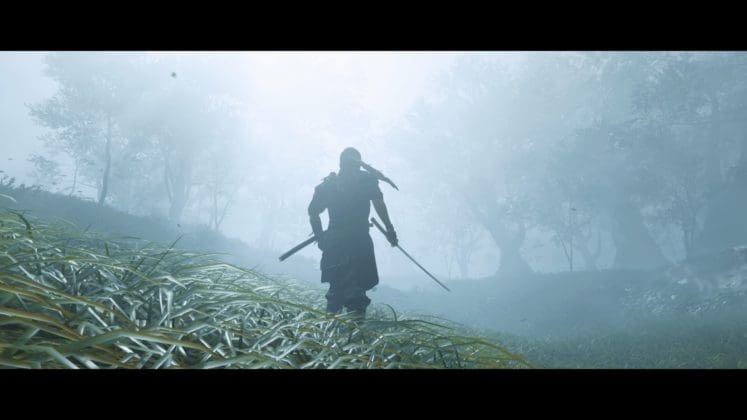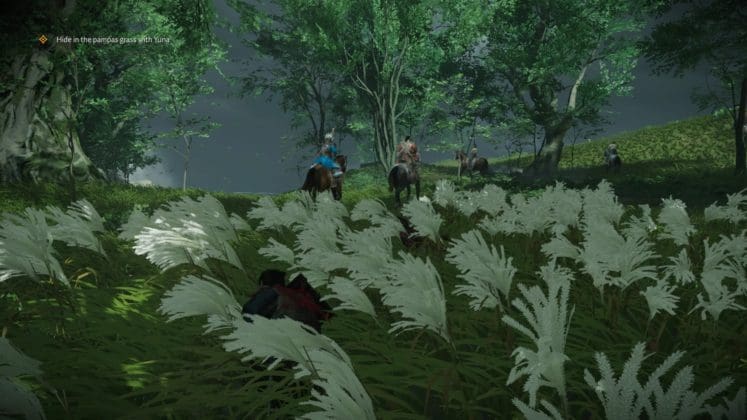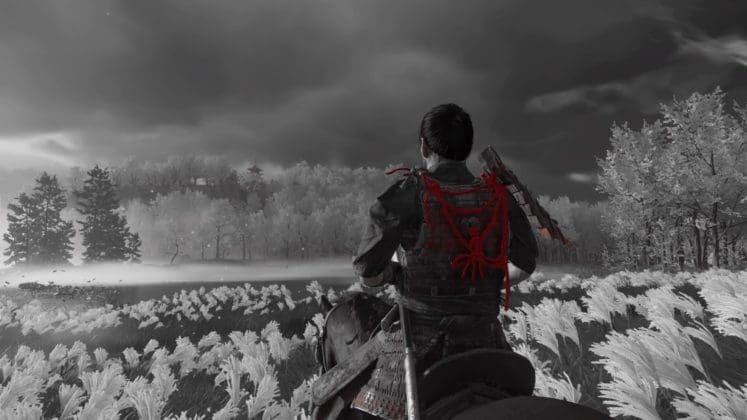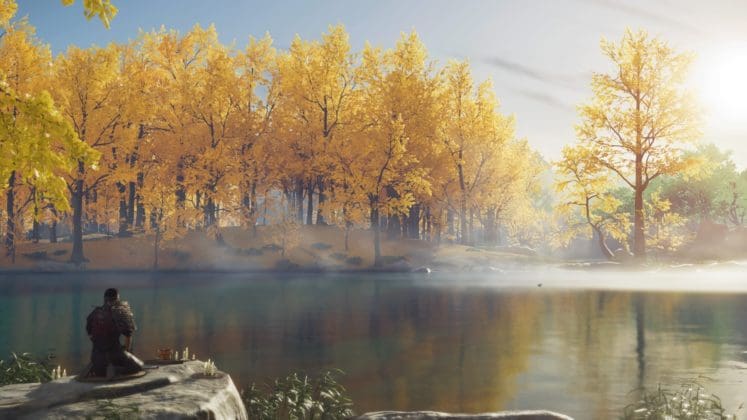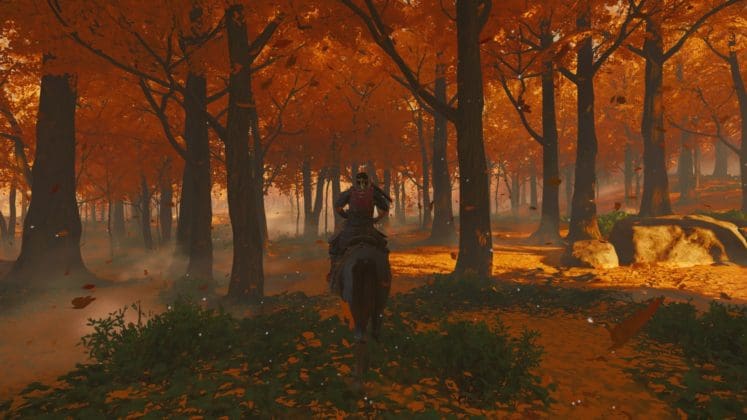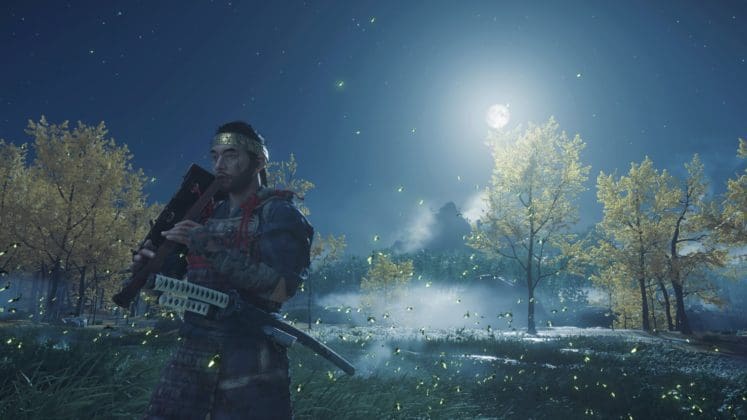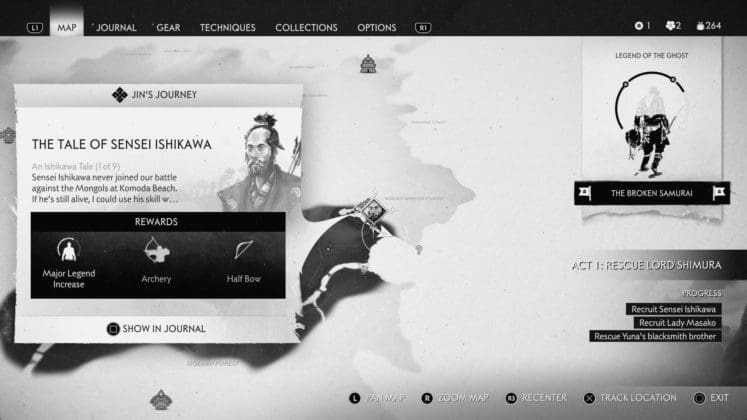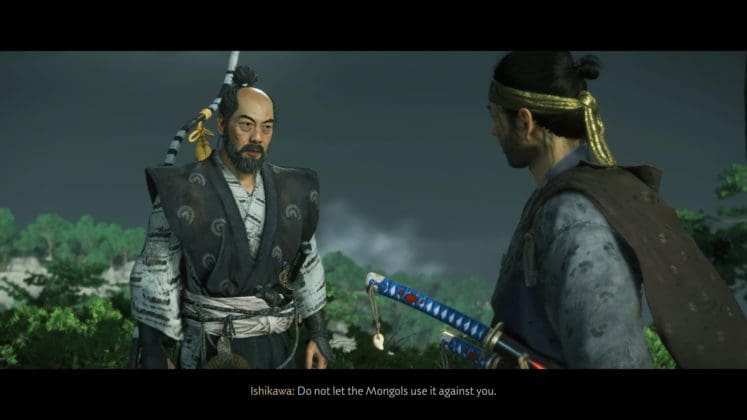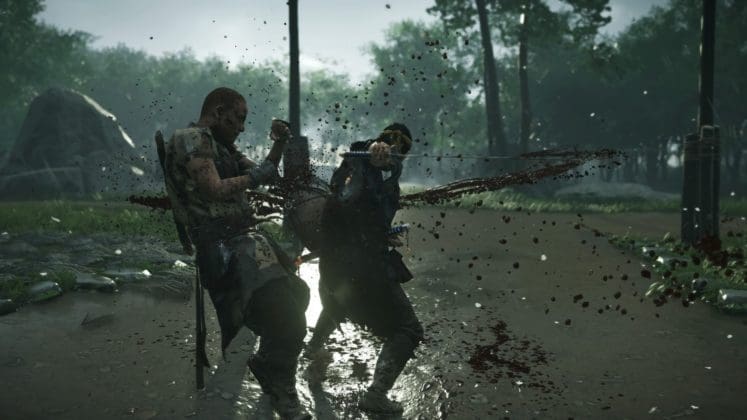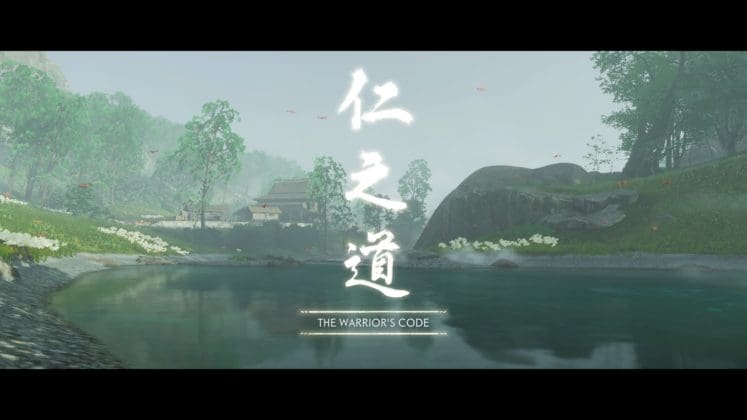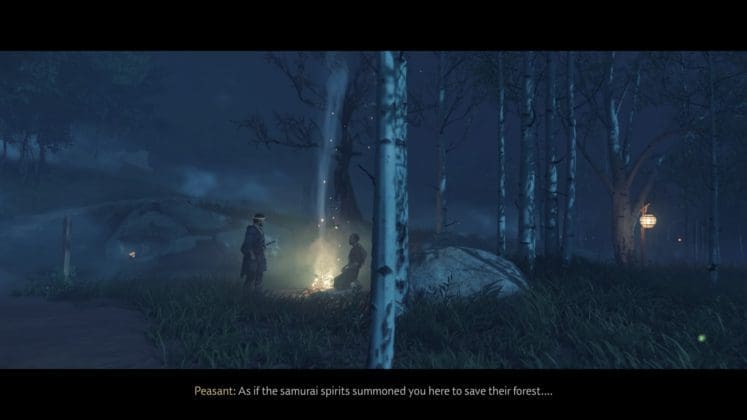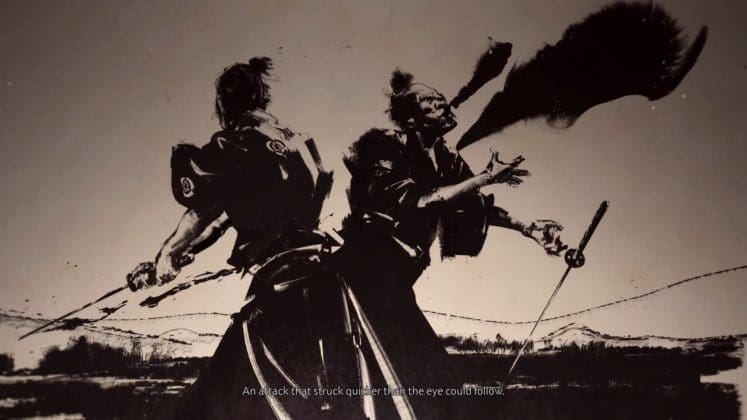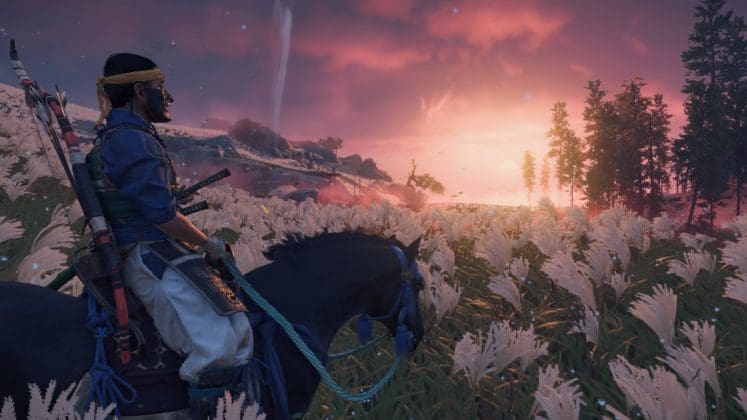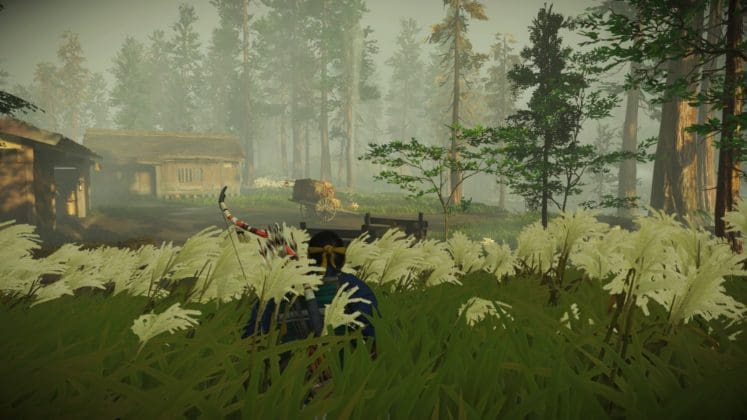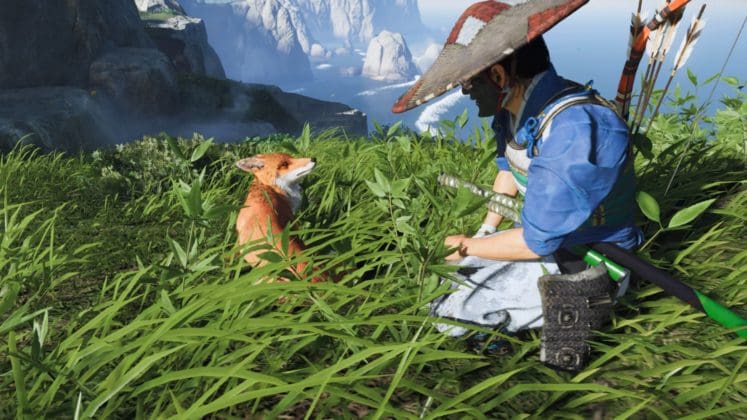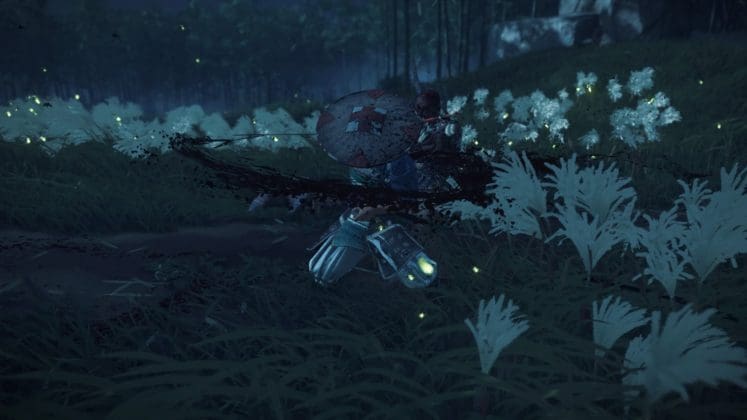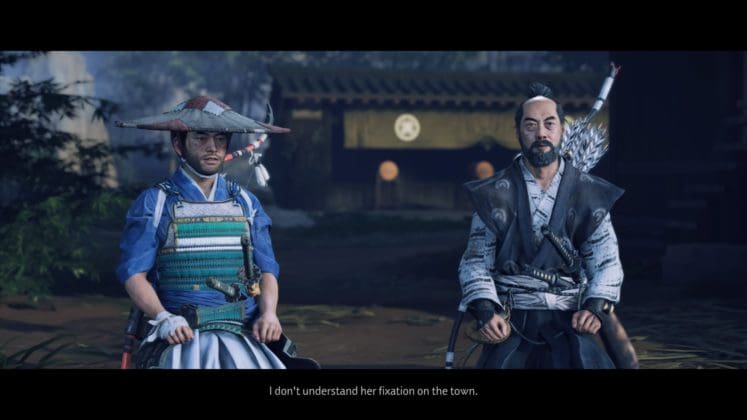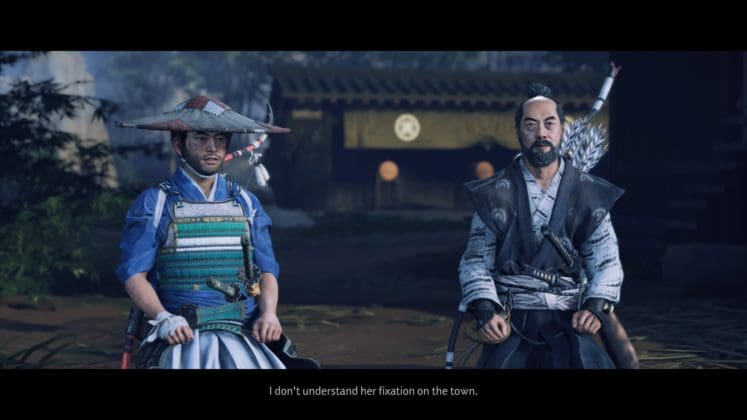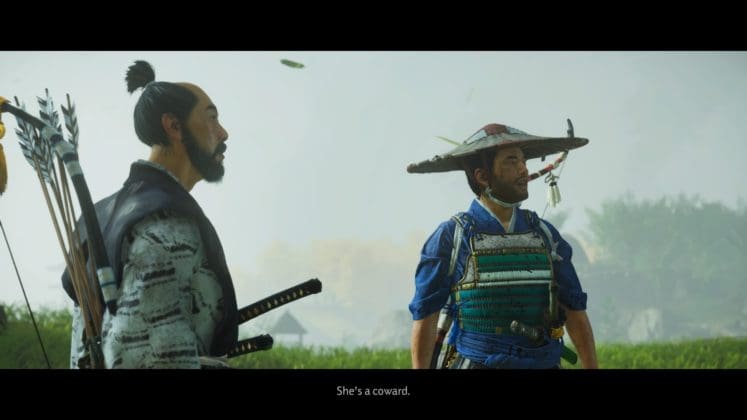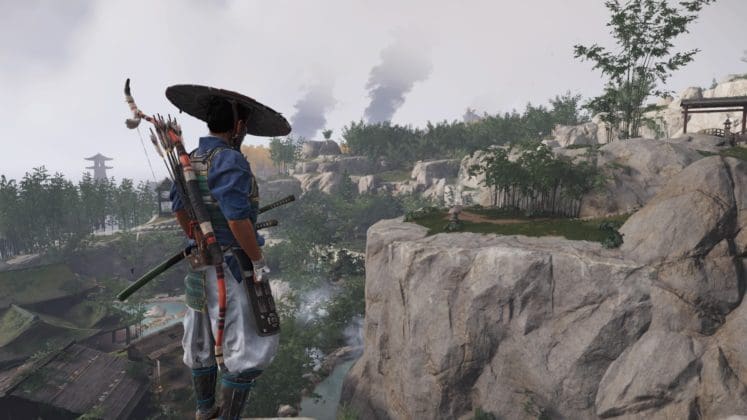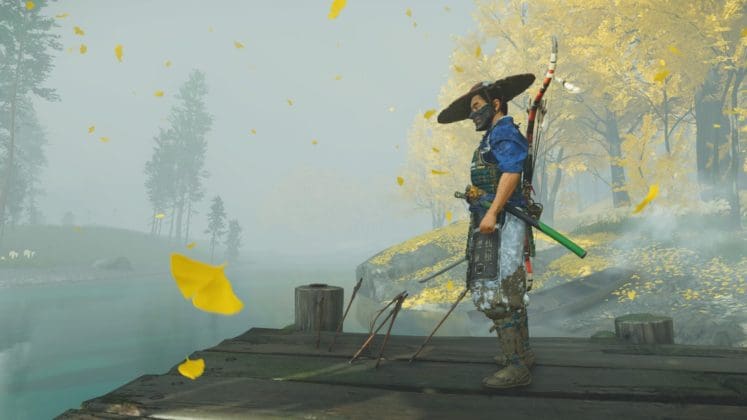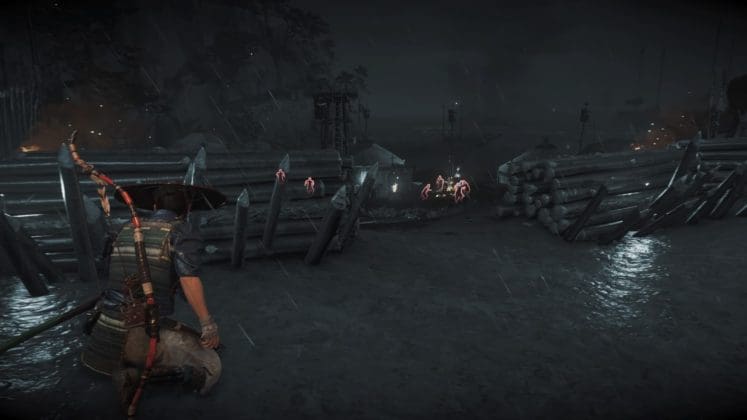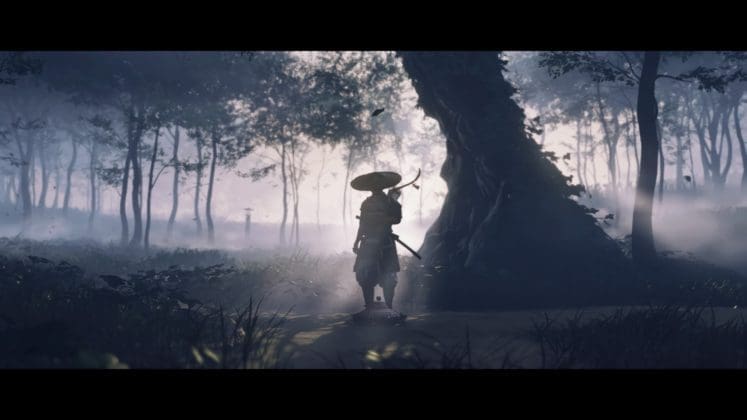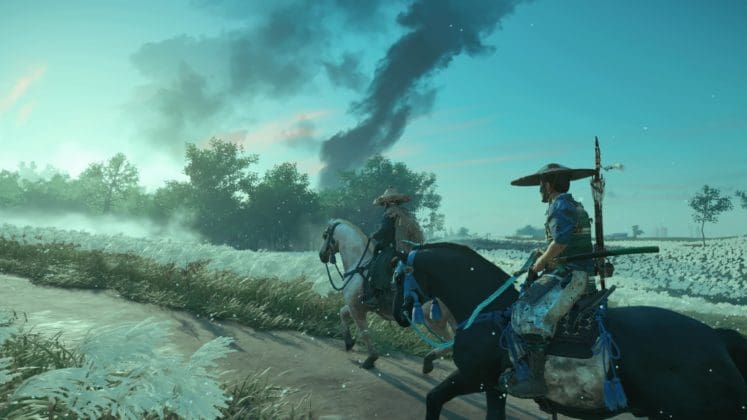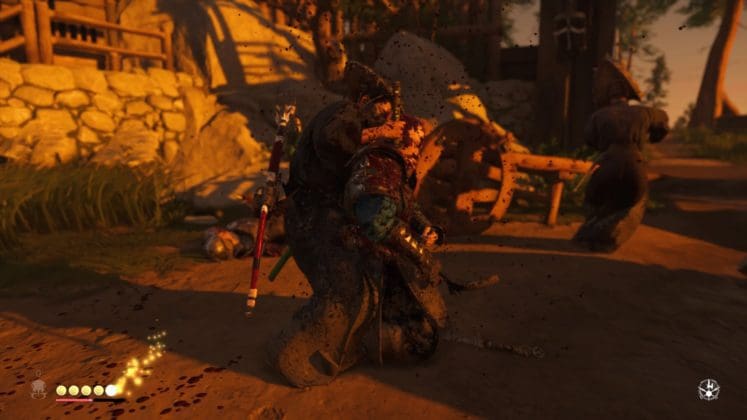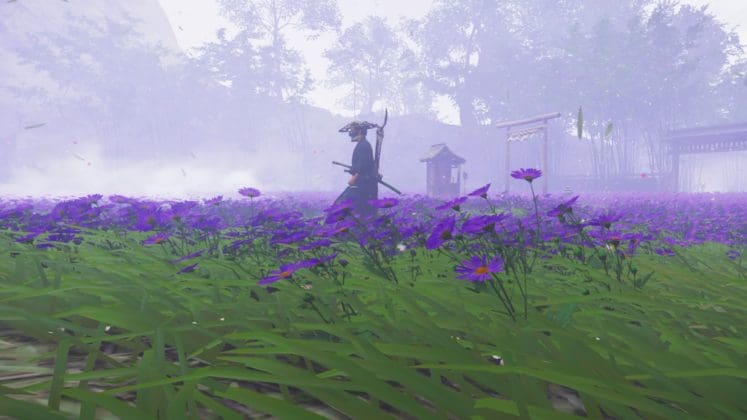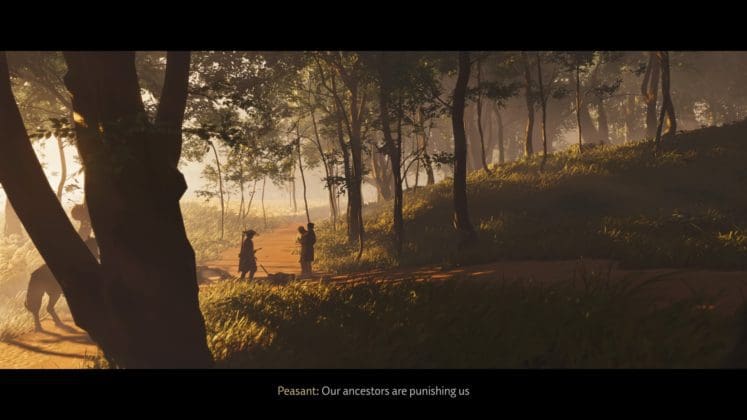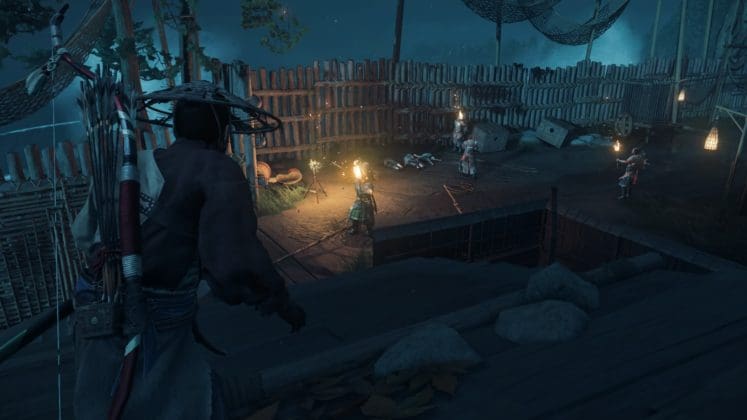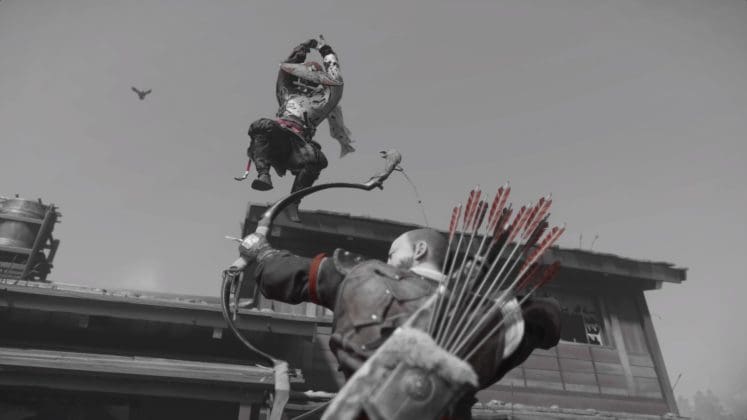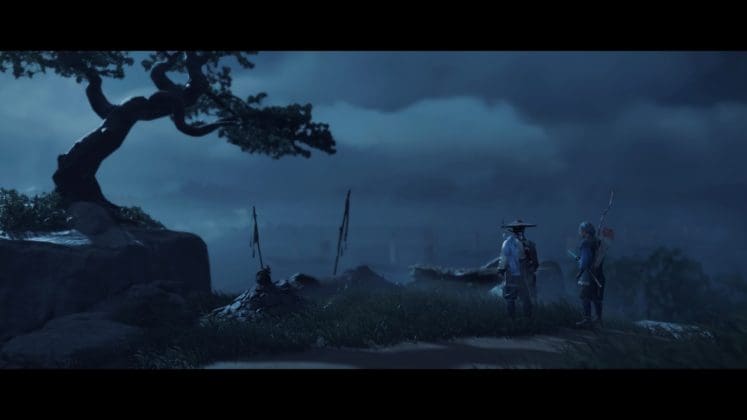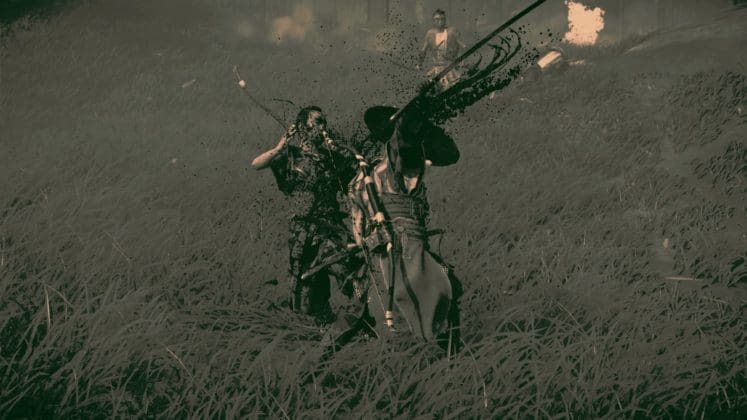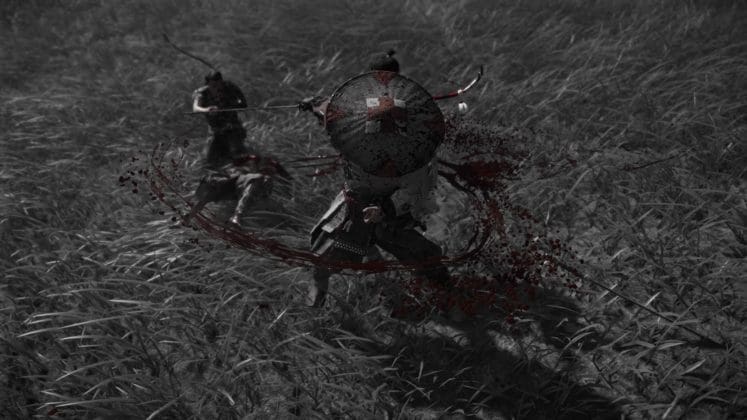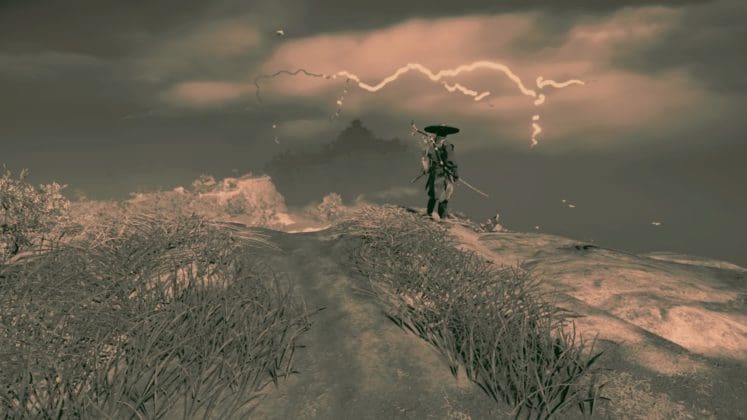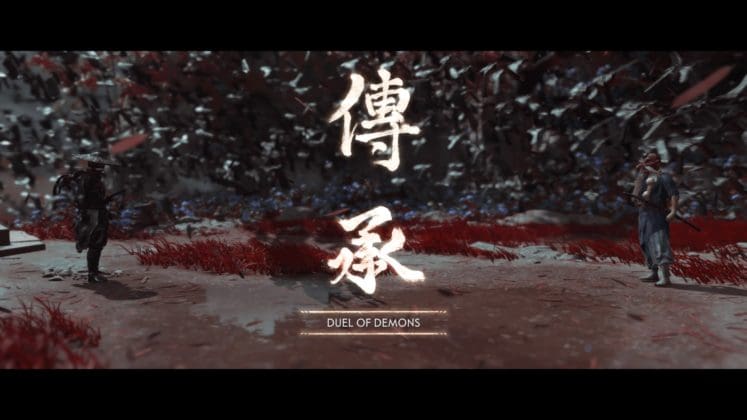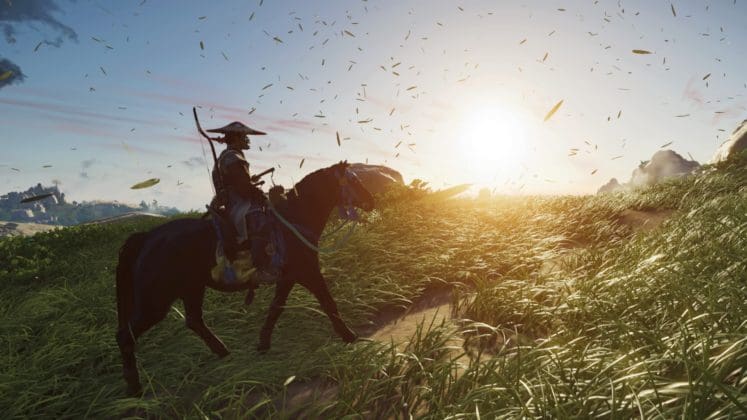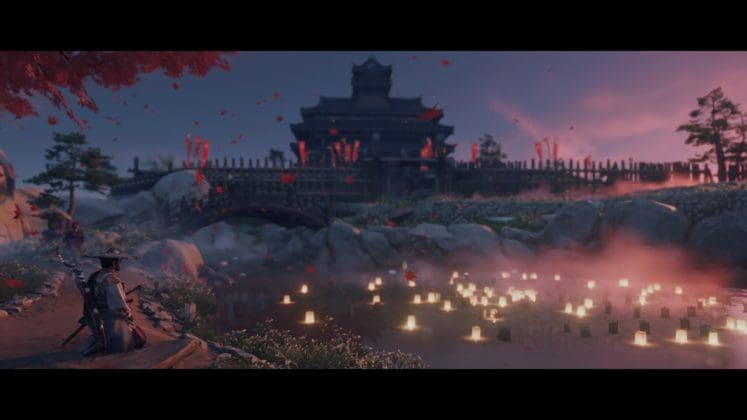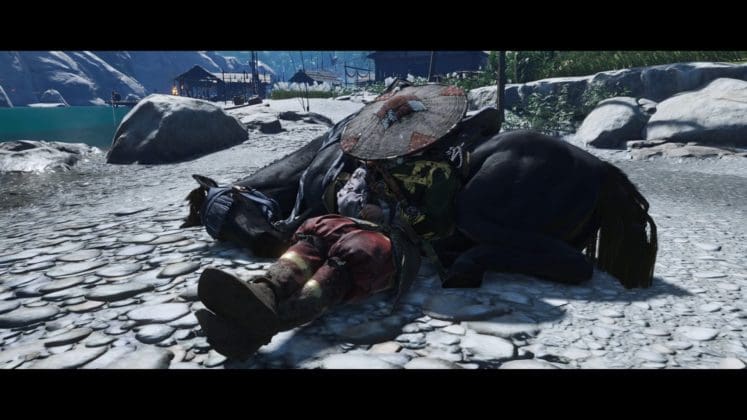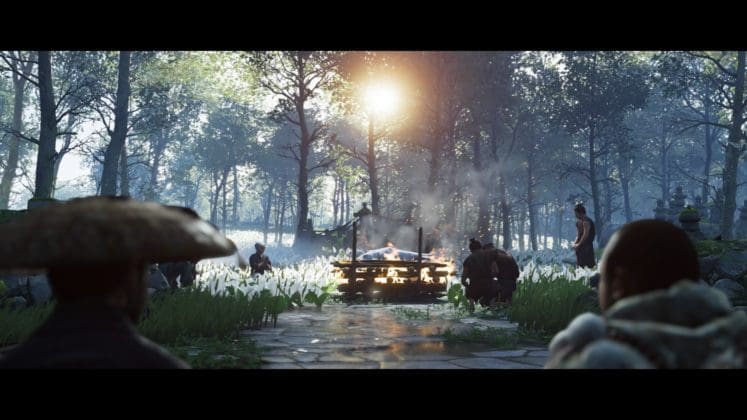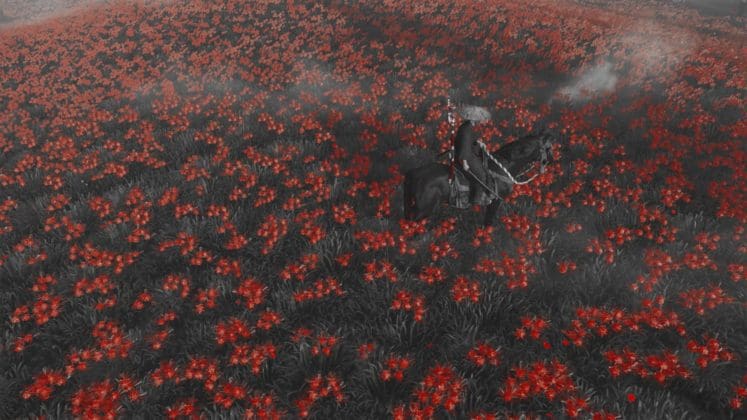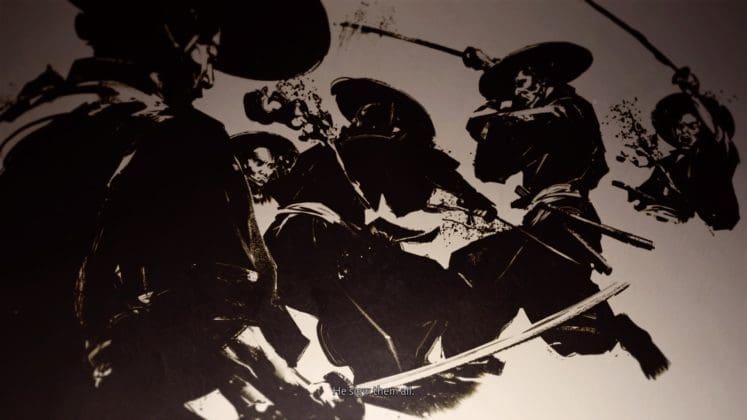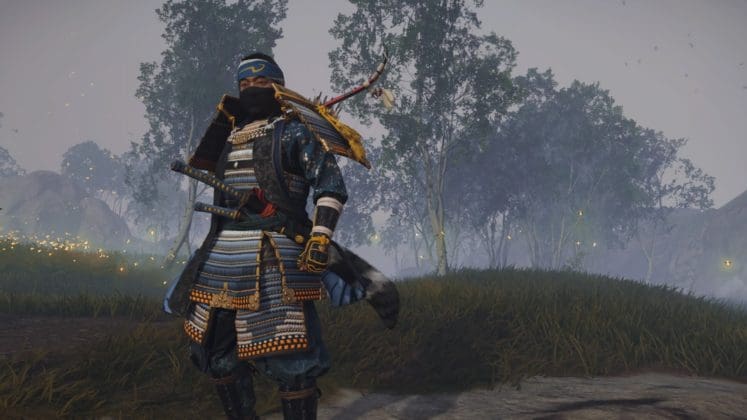Editor’s Note: All imagery in this article are screenshots from actual gameplay of the writer of this review.
Out of all the excellent studio’s working under Sony’s first party umbrella, Sucker Punch Productions is their hidden gem. Creating franchises like Sly Cooper and Infamous, Sucker Punch has made a name for themselves for creating iconic vigilante heroes that operate outside the law and, of course, amazing gameplay.
When they announced their latest project, Ghost of Tsushima, at Paris Games Week in 2017, it was impossible to tell that they even made it until their logo flashed at the end of the trailer. However, the game is a new look for Sucker Punch as they’ve not only created a deep samurai story about honor and valor, but also one of their best games to date.
In Ghost of Tsushima, players are placed into the center of a devastating Mongol invasion led by Khotun Khan (voiced by Patrick Gallagher). The cunning and ruthless grandson of legendary conqueror Genghis Khan is looking to take over Tsushima Island so that he can eventually conquer the mainland. In order to repel Khan’s invasion, the local samurai have banded together to stop him, but are ultimately decimated by Khan’s forces – except for one samurai named Jin (voiced by Daisuke Tsuji). Jin is last surviving member of his family’s lineage, the Sakai Clan, and currently the only surviving samurai able to fight against Khan and reclaim Tsushima. As Jin, players will embark on a journey to liberate Tsushima and defeat the Mongols by recruiting warriors from across the land and becoming a new symbol of hope for Tsushima.
With Ghost of Tsushima, Sucker Punch brings us into the culture and atmosphere of samurais – the legendary soldiers of Japan that are of high nobility. They are highly respected by every peasant they pass and feared by every bandit or thief. What separates them from just being ordinary soldiers is their code of honor and taking enemies head on while looking at them in the eyes as they strike them down. It’s a code they live and die by in the efforts of protecting the people and these aspects of a samurai are easily seen within Jin.
It’s easy for players to feel this sense of importance as every peasant they interact with treats them as a higher authority, but it never boosts Jin’s ego because his samurai upbringing has kept him humbled. This code of honor is all he’s known his whole life as its been instilled in him by his father and his uncle Lord Shimura (voiced by Eric Steinberg), who is being held captive by Khan, and being the last of the samurai in Tsushima puts a heavy burden on his shoulders. However, he doesn’t let his emotions deter him and stands strong in fighting against Khan through his calming and patient attitude – which is greatly reflected in the gameplay.
The game is not the kind of hack and slash experience that focuses on button mashing and furiously fast-paced swordplay, but rather on patience and timing. Every strike matters as well-placed strikes at just the right moment will allow players to take down any enemy in their path and one wrong move could find them at the mercy of their enemies. This kind of fighting style really makes players have to think things through and aggressive gameplay will get you nowhere. Thus, every fight is immensely satisfying, and players can feel the strength and power of Jin’s family katana with every swing.
Sucker Punch also adds in a really great stance system that players can switch to in the moment to do greater damage to enemies. Whether players want to change to a water stance with more flowing movement on enemies with shields or change to a wind stance to land some overheard blows on enemies equipped with spears, the combat is constantly changing and the stance system keeps players on their toes while allowing them control of the pace and flow of battle.
As players make their way through Jin’s story and Tsushima as a whole, they are also given some other tools and weapons that’ll help them turn the tide of battle. The half and long bow can help players take out unsuspecting enemies from afar and they can even obtain fire and explosive arrows to be a bigger threat up close. Players can even use the environment to their advantage by using their arrows to ignite explosive barrels, beehives, and even shooting flaming arrows at fields to light adjacent enemies ablaze.
“Ghost weapons” are also introduced to give Jin some new tools and allow him to stray outside of his samurai ways. Things like smoke bombs that allow for a quick escape, sticky bombs that stick and explode to enemies, bell chimes and firecrackers to distract enemies, and throwable bombs that do a big amount of damage to large groups of enemies are all at your disposal. Personally, while you eventually get used to having this large array of weapons, it’s easy to notice how they really overload the triggers with controls. Switching around to everything, especially in the heat of battle, can be a bit of a pain and it’s not too hard to find yourself panic switching to the wrong things.
All of these tools can be very useful for players to have a stealthier approach to combat. The stealth is pretty straightforward with players being able to pull off silent assassinations that they can even chain together once they’ve made some upgrades through the game’s deep skill tree. The “focused hearing” system highlights enemies so that players can see enemy movement and make plans to see who they should take out first.
The NPC’s can be a little too easy to trick at times as you could be having a big battle outside and there’s one enemy in a building next to you that’s somehow oblivious to the whole thing, but I do love that they gave the Mongols dogs and even hawks to help snuff you out. There’s even a weapon that comes later in the game, which I won’t spoil, that adds to the fun players can have with stealth gameplay as it allows them to both poison enemies and even make them turn on one another. The best thing about the stealth is surprisingly not the gameplay but rather how it impacts Jin’s story.
The Mongol invasion has a deep impact on everyone in Tsushima and sets them on paths, sometimes violent ones, that change their views on life and even the samurai – especially Jin. Watching the samurai fall and being nursed back to health by a talented thief named Yuna (voiced by Sumalee Montano), Jin begins to question whether its more important to uphold the sense of honor that’s driven his life until this point or do what he has to in order save the people of Tsushima. It’s a great internal conflict that drives the story in unexpected ways as Jin becomes a vigilante hero for the people of Tsushima and is given the title of “Ghost.” Sucker Punch is no stranger to creating vigilante heroes and even utilizing player choice, like in the Infamous series, to help decide whether or not they are going to be a force for good or evil. Here though, Sucker Punch takes an entirely different approach to vigilante heroes that leads to rewarding yet devastating consequences for Jin.
The game tackles the impact of being a revolutionary figure perfectly and why maybe the samurai’s code of honor isn’t without its flaws. While the samurai don’t see their lives as being more important than the peasants and will send tons of troops into battle to “die for honor” but possibly lose massive amount of troops for the sake of upholding their code of honor, Jin begins to see greater cost for the people he works with. They show him a unique kind of respect that makes him care for him more and there’s a personal level that’s reached with the relationships that he makes that makes you kind of side with Jin’s new outlook. It’s even great how dialogue choices come up throughout the game that help players build their own perspective about how Jin views this new respect and other people’s views of him.
However, Sucker Punch isn’t afraid to show the mistakes and falsehoods of Jin’s vigilante persona and even how his humbleness doesn’t make him flawless. There’s a choice he makes before Act III that has lasting ramifications on how powerful the Mongols become and how they hurt people. There’s even a great point that someone makes about Jin being Ghost about them being more invested into their own perceptions of him rather than what he really is. Even the emotionally crippling ending symbolizes the cost of Jin’s rebellion and Sucker Punch delivers a fresh take on vigilante heroes that’ll stick with players.
Sucker Punch also creates a myriad of other stories that flesh out the impact of the Mongol invasion through plenty of great side missions and characters. From the enticing story of a masterful archer named Sensei Ishikawa (voiced by Francois Chau) hunting down a former student gone rogue to making amends with a former faction that rebelled against the samurai, there’s a lot of great world-building and storytelling that shows how devastating the Mongol invasion was on the people of Tsushima.
Even the entire story of Lady Masako (voiced by Lauren Tom) really brings you to the verge of tears because of how much she’s lost and Ryzuo (voiced by Leonard Wu), Jin’s childhood friend and leader of the Straw Hats, perfectly symbolizes the desperation people turn to on the verge of losing everything. Kotun Khan is also just a perfectly simple and effective villain as his desire for getting out of the shadows of his grandfather are easily understood and his presence can be felt with every Mongol players encounter. There’re also a ton of different side missions that have players helping the locals that contain very unique stories and that hard not to be invested into as the turns and ending of them can really impact you.
There’re also some great collectibles and side activities that make exploring the world an absolute blast and are totally addictive. Players will find themselves being unable to resist running around to find every soothing hot spring, resources to obtain more customization options for armor and sword kits, shrines to worship, and foxes to chase. The best and most relaxing side activities was definitely the haiku’s players can create as the player choice in it is wonderful and is kept with the headband that players obtain after completing. It creates a strong personal tie that players can have with the item and creates a deeper sense of meaning. Players can also obtain game-changing abilities by embarking on mystical tales given to them by a musician named Yamato (voiced by Feodor Chin) that create a sense of historical lore and make players invested into the unbelievably gorgeous looking world around them.
Ghost of Tsushima is the most beautiful looking game ever. There’re always some games that come along that are said to be one of best-looking games ever, but this game delivers it every step of the way. The color scheme is striking, the weather is very dynamic, the sound design is excellent, there’re rolling hills with tons of fauna that’ll bring a tear to your eyes because its so beautiful, and there really hasn’t been a world like this in gaming – like ever. It’s all even better when players are utilizing photo mode, which has an impressive amount of awesome alterations players can make, and it’s sets a new standard for visual beauty in games.
Not to mention, Sucker Punch creates a strongly cinematic feel to the entire game and the way that duels and standoffs open immediately hooks you and makes the repetitive nature of them somehow remain fresh and compelling. Sucker Punch also pulls off an excellent nod to the works of Japanese director Akira Kurosawa, who heavily inspired this game, by allowing players to put on a “Kurosawa” filter that changes the game to look like an old black and white samurai movie to create an authentic experience for players to enjoy.
Just as PlayStation and Naughty Dog delivered a top game of the year contender with The Last of Us Part II, Sucker Punch punches in with Ghost of Tsushima and delivers on the best games that PlayStation has ever had. It’s easily one of the best games they’ve ever made as it encompasses the kind of vigilante stories they love to tell and is packaged in a compelling and visually immaculate world. It’s the true definition of a modern masterpiece and is one of the best exclusives that PlayStation has ever had.

